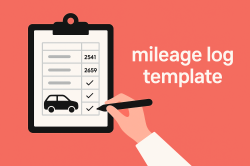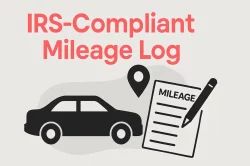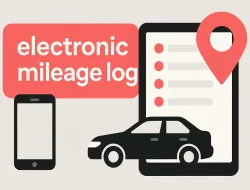Table of Contents
A mileage log helps you track miles driven for work, health, charity, and moving. It’s key for claiming mileage on your taxes on taxes or getting paid back by your job. Let’s learn more about it.
What is a Mileage Log and Why Do You Need One?
A mileage log is a record of your car trips, telling you how far you drove and why. You need one to prove your driving expenses to the IRS or your boss. For instance, you can often write off the cost of driving your own car for business.
Keeping a good mileage log is very important. It helps you get tax money back and avoid problems if the IRS asks questions. According to the IRS, you need to keep clear records of your driving. (Link to IRS Topic 510: Business Use of Car).
What Your Mileage Log Must Include
To create a compliant mileage log, you need to write down specific things for each trip.
Your log should have:
- The date you drove.
- Where you started and where you went.
- The reason for the trip (like a business meeting or medical visit).
- How many miles did you drive? You can get this from:
- The start and end numbers on your car’s odometer reading.
- The total miles for that trip.
It’s best to write this down as soon as you finish a trip. Waiting too long can make your log less accurate, and the IRS likes logs that were kept while the driving happened.
Of course, it is possible to recreate your mileage log, but avoid mileage log generators that make random mileage logs.
FAQ
What is a mileage log?
A mileage log is a detailed record of your driving history—documenting the date, starting point, destination, purpose, and miles driven—to substantiate business-use claims. See a mileage log sample to get the general idea.
Why should I maintain a mileage log?
Accurate mileage logbooks are essential for maximizing tax deductions, ensuring IRS compliance, and providing clear evidence in the event of an audit.
How does MileageWise simplify mileage logging?
MileageWise automatically captures trips, allows you to review and categorize each entry, and generates IRS-compliant mileage logs —eliminating manual record-keeping. So you don’t need to worry about how to create a mileage log.
Try MileageWise for free for 14 days. No credit card required!
Related Terms
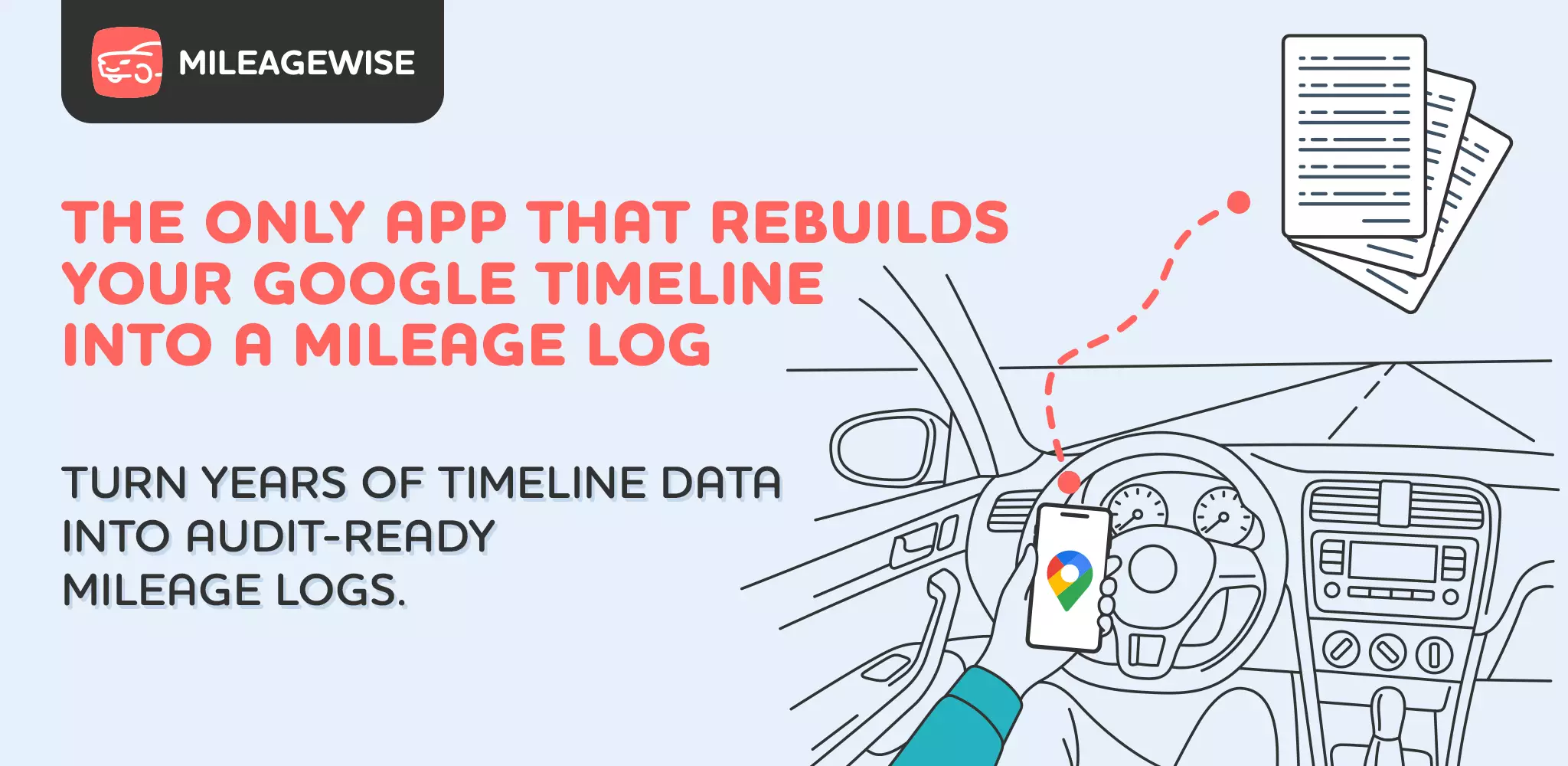
Introducing the Google Timeline to Mileage Log Mobile App
We’re excited to share our latest development! You can now convert your Google Maps Timeline drives directly into an IRS-compliant mileage log right on your

DoorDash Tips and Tricks: Your Edge Over Competition
Last Updated: November 17, 2025 I’m excited to share the top DoorDash tips and tricks shared by YouTuber Pedro “Mr.BetonYou” Santiago. He collected and vetted the

8 Uber and Lyft Scams Every Driver Should Know
Last Updated: November 9, 2025 Driving for Uber or Lyft can be a rewarding gig, offering flexibility and the chance to meet new people. However,
SherpaShare Shutdown – What To Do Now?
Last Updated: October 7, 2025 SherpaShare was a service designed primarily for people who work as independent contractors, particularly those in the ride-sharing and delivery
Gas Mileage Tracker: Your Key to Savings
Last Updated: August 8, 2025 A gas mileage tracker helps drivers watch their vehicle’s fuel use, mileage, and related costs. You might want one to
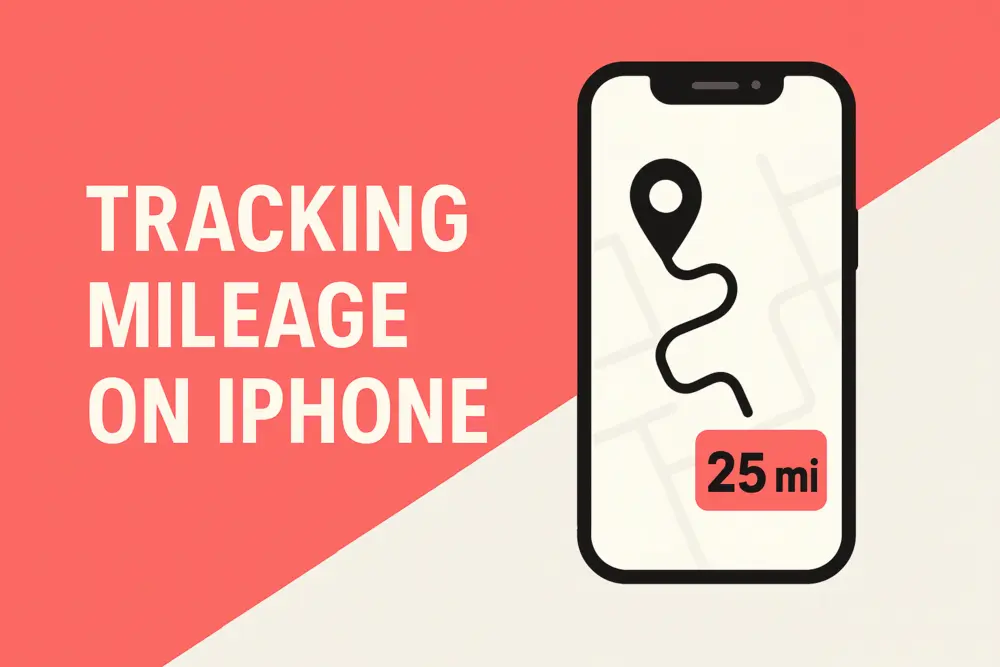
How To Track Miles on iPhone: Find your Match
Last Updated: August 6, 2025 Looking to track miles on your iPhone? Whether it’s for fitness, personal use, or business tax deductions, your iPhone offers
Related Guides


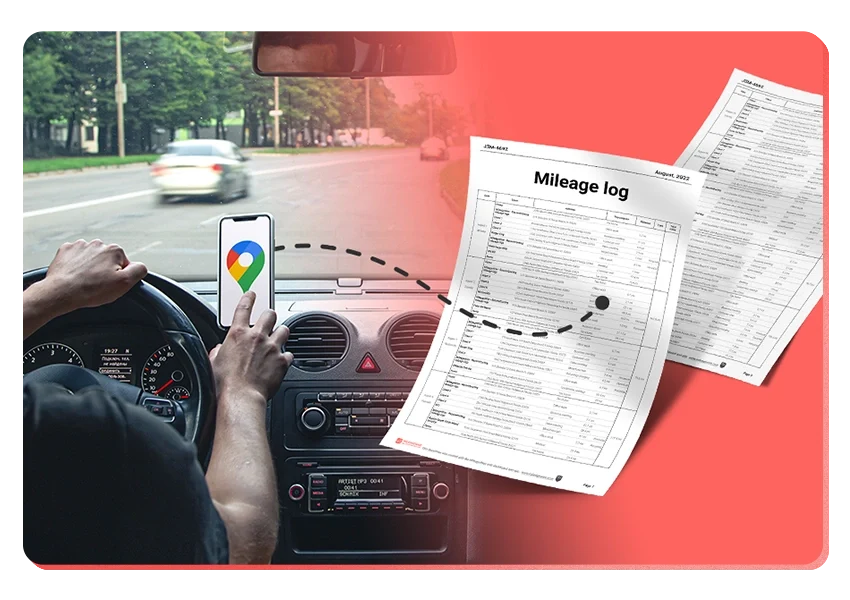
It’s Finally Here! Google Maps Timeline Import from Mobiles
Transform your Trip Lists into Mileage Logs with MileageWise

Introducing the Google Timeline to Mileage Log Mobile App
We’re excited to share our latest development! You can now convert your Google Maps Timeline drives directly into an IRS-compliant mileage log right on your

DoorDash Tips and Tricks: Your Edge Over Competition
Last Updated: November 17, 2025 I’m excited to share the top DoorDash tips and tricks shared by YouTuber Pedro “Mr.BetonYou” Santiago. He collected and vetted the

8 Uber and Lyft Scams Every Driver Should Know
Last Updated: November 9, 2025 Driving for Uber or Lyft can be a rewarding gig, offering flexibility and the chance to meet new people. However,
SherpaShare Shutdown – What To Do Now?
Last Updated: October 7, 2025 SherpaShare was a service designed primarily for people who work as independent contractors, particularly those in the ride-sharing and delivery
Gas Mileage Tracker: Your Key to Savings
Last Updated: August 8, 2025 A gas mileage tracker helps drivers watch their vehicle’s fuel use, mileage, and related costs. You might want one to

How To Track Miles on iPhone: Find your Match
Last Updated: August 6, 2025 Looking to track miles on your iPhone? Whether it’s for fitness, personal use, or business tax deductions, your iPhone offers

Introducing the Google Timeline to Mileage Log Mobile App
We’re excited to share our latest development! You can now convert your Google Maps Timeline drives directly into an IRS-compliant mileage log right on your

Was Your Google Timeline Deleted? Here’s What Happened:
Last updated: November 20, 2025 If you recently opened Google Maps and noticed your Timeline was deleted or partially missing, you’re not alone. In this

It’s Finally Here! Google Maps Timeline Import from Mobiles
Struggling to Manage Your Trips After Google’s Timeline Update? If you’re reading this, you’ve likely encountered the recent update affecting Google Maps Timeline. With Timeline
Transform your Trip Lists into Mileage Logs with MileageWise
Last Updated: October 1, 2025 Do you have a list of monthly trips from a data source like Excel or Google Timeline, but need to

How to Download Google Timeline Data: A Guide
Google Timeline Import Hub Last Updated: October 30, 2025 Want to download Google Timeline data? This guide shows you how to extract your location history

How to Export Google Maps Timeline: Get Your Data
Google Timeline Import Hub Last Updated: October 29, 2025 It can be tricky to export Google Maps Timeline data after Google’s recent updates. Many users
Google Maps Mileage Tracker: From Timeline to Mileage Log
Google Timeline Import Hub Last Updated: October 29, 2025 If you’re an active user of Google Maps Timeline you likely already know how convenient it
Timeero
Table of Contents Timeero Timeero is a time, location, and mileage tracking app designed for businesses and teams in the United States. It helps employers
Milewise by Allstate
Table of Contents Milewise by Allstate Milewise by Allstate is a pay-per-mile car insurance program offered by Allstate Insurance in the United States. It’s designed
Hurldr
Table of Contents Hurdlr Hurdlr is a finance and expense tracking app designed for self-employed professionals, freelancers, and gig workers in the United States. It



